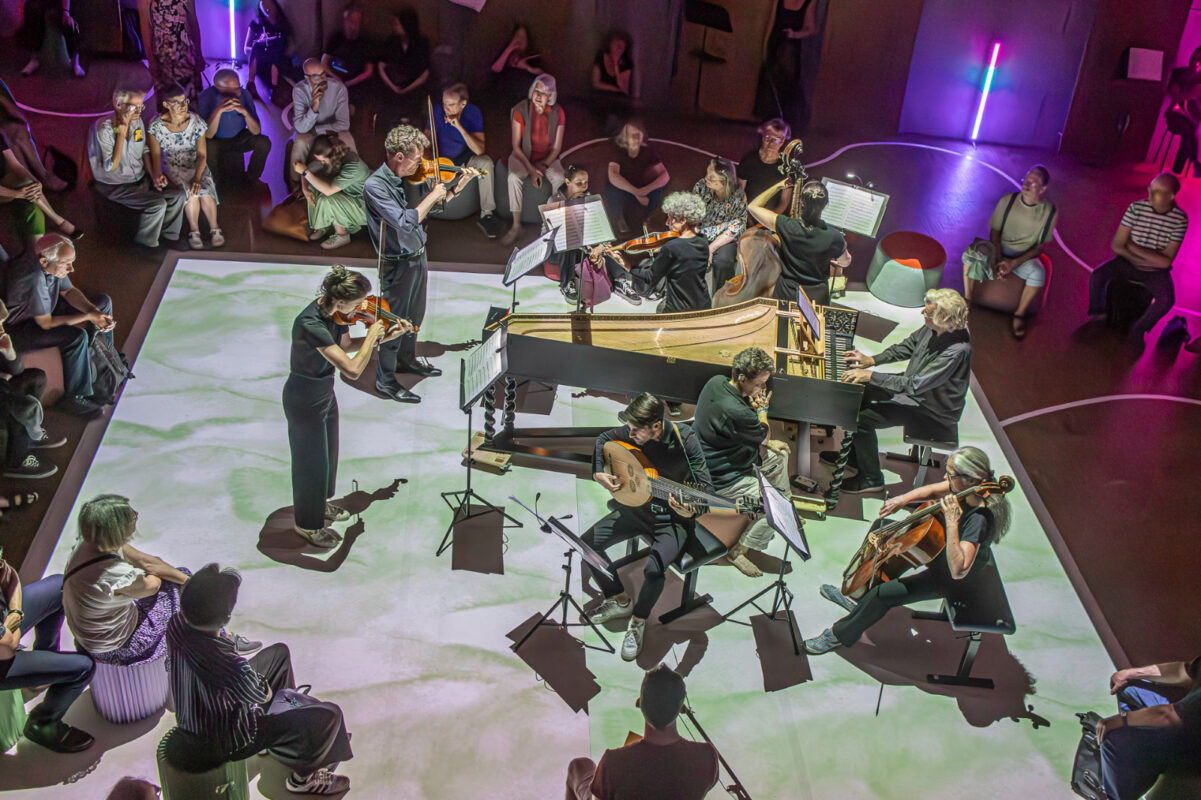Giving something back to society
The Bern University of the Arts dedicated an all-day symposium to patronage. This form of private sponsorship is more relevant today than ever.

Over 2000 years ago, the Roman nobleman Gaius Maecenas enabled writers to create freely through material support. Today, his name stands for altruistically-minded, usually very wealthy people and foundations who support cultural and social projects without expecting anything in return. The term "philanthropy" (love of humanity), which originated in ancient Greece, is closely linked to patronage.
The foundation report from Swiss Foundations, an important umbrella organization of charitable grant-making foundations in Switzerland, shows that 301 foundations were established in 2018. 195 were liquidated. Total foundation assets amount to around 100 billion Swiss francs. The foundation density is 15.5 per 10,000 inhabitants. This puts Switzerland at the top internationally. According to NZZ am Sonntag (online) from December 14, 2019 the sum of inherited and gifted assets amounted to CHF 95 billion in 2020. This could trigger a further boost in the development sector.
Professionalized application process
Felix Bamert, Head of MA in Music Education at the HKB and organizer of the Symposiumdrew parallels between money and music in his welcoming address: "Both can move, trigger energy and emotions." This assessment was reinforced in the morning by the keynote speaker, philanthropy and foundation specialist and author Elisa Bortoluzzi Dubach. She presented a comprehensive overview of the nature and specific forms of patronage. In the afternoon, a number of important Swiss patrons explained their personal convictions and reported on their projects.
"Patronage fundraising means targeted collaboration with patrons to finance a civil society project, an individual or a non-profit organization," explained Bortoluzzi Dubach. The speaker took a close look at the characteristics of wealthy individuals who are potentially willing to donate and came to the conclusion that they are happy to be inspired by good projects. Quality plays a decisive role. Empathy and a relationship of trust are just as essential. Donors often value long-term cooperation and expect reliability, results and involvement. Important, often underestimated elements are the gratitude of the recipient and their responsible management of resources.
Self-confident applicants who know what they want and are able to represent their project with passion, explain its social added value and have a vision, strategy and short and long-term goals in mind have a clear advantage. Preparation is important: lists of potential donors must be drawn up, and a business plan, budget and communication strategy must be developed. Unique selling points of the project must also be worked out, as well as conditions that could lead to the rejection of an offer of support.
There are now a considerable number of links for tracking down potential donors. In addition to websites such as swissfoundations.ch or fundraiso.ch, the Balance Sheet of the 300 Richest (many of whom are philanthropically active) or wealthx.com (which lists personalities with assets of over 30 million dollars) can also help.
"The man who dies so rich dies in disgrace"
In his welcoming address, the Rector of the BUA, Thomas Beck, quoted an important American patron of the arts of the 19th century, Andrew Carnegie, who was convinced that rich people had a moral obligation to give something back to society. This attitude, which is also evident in the above quote from Carnegie, was also evident among the illustrious guests. The art collector and benefactor Hubert Looser posed the question of the purpose of money: "If you have lived well yourself, it is the public's turn." He supports humanitarian projects worldwide with his foundation. Art collector Marlies Kornfeld presented her Nepal Foundation for socially disadvantaged children and young people. Jobst Wagner, entrepreneur, collector and President of the LARIX Foundation, emphasized that "private individuals need to do more for our country again". It's not just about the really big projects; "small buns" should also be baked. Elisabeth Oltramare-Schreiber, honorary member of various foundations, spoke of her passion for supporting and promoting, especially in the service of young, talented musicians. "Generosity is part of patronage," Konrad Hummler is convinced. The banker has created a monument of considerable proportions with the performance and recording of the complete vocal works of his favorite composer Johann Sebastian Bach. To this end, he founded the J. S. Bach Foundation St. Gallen. This project started in 2006 and will keep him busy for several years to come.
The successful violinist Kamilla Schatz took the path from musician to foundation director. A few years ago, she decided to give up her career as a musician and founded the Pestalozzi School Camps Foundation.
There is a reason why most Swiss philanthropists are unknown to the general public. While the motto in other countries is "Do good and talk about it", Swiss patronage relies on restraint and discretion.








